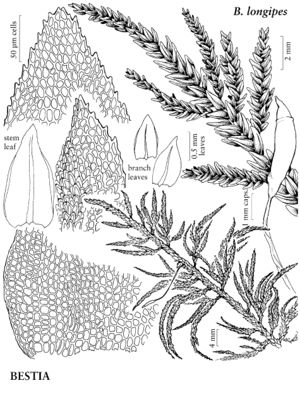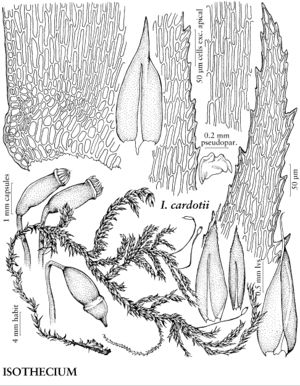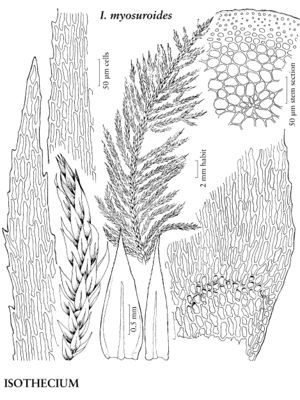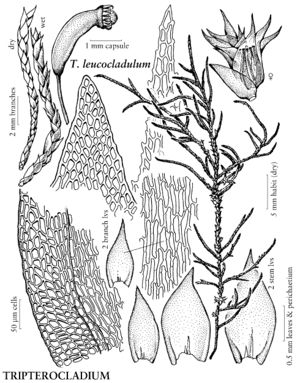Plants small to large, pale to dark green or golden. Stems terete-foliate, irregularly pinnate to regularly 2-pinnate or 3-pinnate, often somewhat stipitate; hyalodermis absent, cortical cells small, walls incrassate; paraphyllia absent; pseudoparaphyllia foliose; axillary hair basal-cells 1 or 2, short, brown, apical cells 1–4, elongate, hyaline. Stem and branch leaves often differentiated, loosely appressed, usually ovate, usually concave; base decurrent; costa single or double, short, sometimes weak on stipe and stem-leaves and strong on branch leaves; alar cells usually well differentiated, usually quadrate, often excavate; medial laminal cells short to linear, smooth or prorulose. Sexual condition dioicous. Seta long or sometimes short, smooth or roughened throughout or distally. Capsule erect or sometimes horizontal, cylindric, symmetric or sometimes curved; annulus usually differentiated; operculum conic to short-rostrate, straight; peristome double, perfect or sometimes reduced; exostome, when not reduced, with external surface cross-striolate proximally, papillose distally, when reduced, striate, papillose, or smooth; endostome basal membrane high or low, segments long, narrowly perforate, cilia nodose or appendiculate. Calyptra cucullate, smooth or slightly roughened, naked or hairy.
Distribution
North America, Europe, Asia, Atlantic Islands, Pacific Islands
Discussion
Genera 14, species ca. 50 (3 genera, 7 species in the flora).
Lembophyllaceae are largely a south-temperate family, but also extend into the tropics. The plants tend to have terete-foliate stems with ovate, concave leaves. The costa is variable, sometimes on different leaves of the same plant. Many of the genera have perfect hypnoid peristomes, but there are genera (for example, Bestia) with reduced peristomes. The calyptrae being frequently hairy is an unusual character in the flora area.
Selected References
None.
Lower Taxa
Illustrations
Key
| 1 | Costae short and double or rarely single in isolated leaves; stem and branch leaves differentiated. | Tripterocladium |
| 1 | Costae single; stem and branch leaves similar | > 2 |
| 2 | Medial laminal cells less than 4:1; capsules erect; peristome reduced. | Bestia |
| 2 | Medial laminal cells more than 5:1; capsules suberect, inclined, or rarely erect; peristome perfect. | Isothecium |



